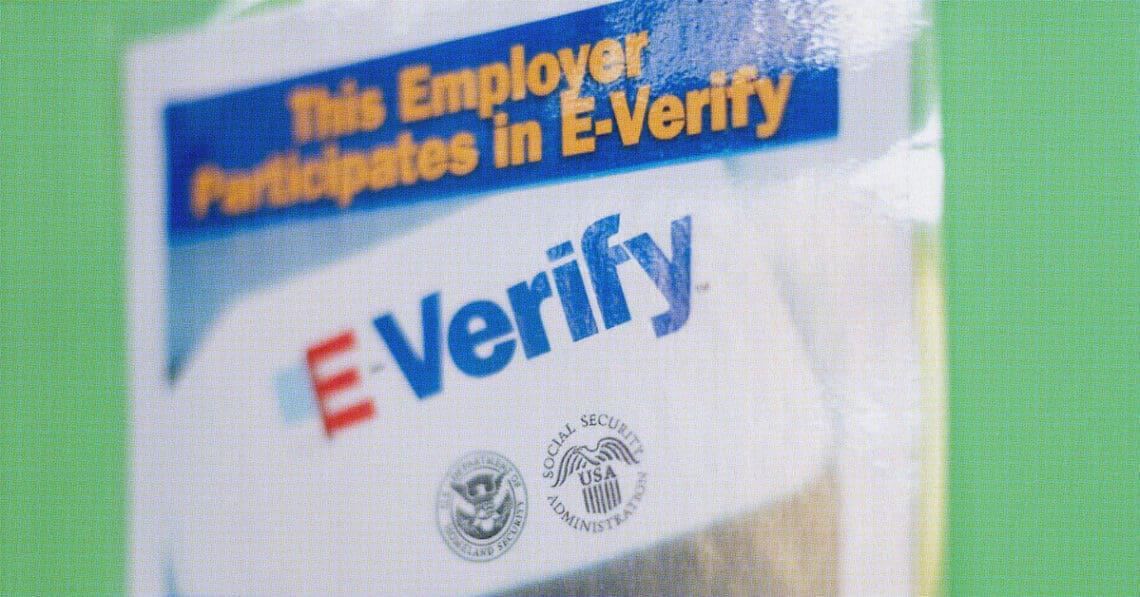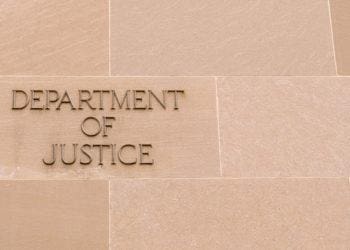HR and compliance teams seeking to get ahead of changing policies under a second Trump Administration should start by looking at the all-important Form I-9 verification process. If history provides any clues, employers can expect increased enforcement, changes in work authorization policies and a potential expansion of the E-Verify program, says John Fay, director of product strategy at Equifax Workforce Solutions.
For many employers, the Form I-9 has long been relegated to the “administrative necessities” pile of new hire onboarding. Sandwiched between tax forms and benefit enrollment, the Form I-9 verification process can feel like a mere formality, rather than a longstanding and important compliance obligation.
To a large degree, the form’s familiarity stems from its age. For almost 40 years, US employers have been responsible for ensuring they hire and employ a legal workforce by verifying their new hires’ identity and work authorization through the Form I-9 process. But this sense of familiarity may be misleading. While the core purpose of the Form I-9 remains the same, the employee verification landscape is poised to undergo a potential transformation with the new Trump Administration.
While no one knows precisely what will occur in the coming months and years ahead, many employers are anticipating I-9 enforcement to intensify, as the incoming administration makes good on its promise to remove undocumented individuals and increase border security. At the same time, potential changes in immigration policy under the Trump Administration may impact Form I-9 documentation rules and demand even greater vigilance on the part of HR. The E-Verify program, currently mandatory for some employers, may also see expanded use and requirements, both at the federal and state levels.
Fortunately for HR and compliance managers, these potential shifts will likely evolve over time. But this relative period of calm may be fleeting. In order to prepare for the potential storm, employers should proactively assess their current practices, identify potential vulnerabilities and prepare for a new era of I-9 and E-Verify.
Watch for the Hidden Tax Dangers of Digital Nomad Visas
Increasingly popular visa is an immigration tool — and could be a tax liability
Read moreDetailsWaves of enforcement
While the Form I-9 has been a mainstay in the hiring process for nearly four decades, its enforcement by government agencies has seen periods of ebb and flow. The Immigration Reform and Control Act of 1986, which established the I-9 requirement, aimed to curb illegal immigration by holding employers accountable for verifying the identity and employment eligibility of their workforce. This legislation, codified in Section 274A(b) of the Immigration and Nationality Act (INA), has been the foundation of I-9 compliance ever since.
However, the level of enforcement activity has fluctuated over the years. The Bush Administration focused on workplace raids in the early 2000s, resulting in mass arrests of suspected unauthorized workers. The Obama Administration shifted toward I-9 audits and fines for employers. The first Trump Administration employed both tactics on a larger scale, with I-9 audits more than quadrupling and over $121 million in judicial fines, forfeitures and restitutions issued in FY2017, FY2018 and FY2019. The Biden Administration de-emphasized worksite raids, focusing instead on employers who exploit unauthorized workers.
Now that Donald Trump has returned to the White House, employers are once again bracing for a renewed era of worksite enforcement, punctuated by the president’s pledge to launch the largest deportation program of undocumented individuals in American history. Building on enforcement tactics used during his first administration, Trump has also appointed Thomas Homan, a former acting Immigration and Customs Enforcement (ICE) director, to be his new “Border Czar” responsible for border security and other areas of immigration enforcement. Homan has already publicly indicated that “worksite enforcement is coming back in a big way,” with a focus on operations that uncover potentially unauthorized workers.
Employers must also consider potential changes in I-9 and E-Verify enforcement from other federal agencies. For example, US Citizenship and Immigration Services conducts E-Verify “desk reviews” of E-Verify participants when it appears that an employer may not be following the rules outlined in the E-Verify memorandum of understanding and related agency guidance. Failure to respond or take action can in some cases lead to termination from the E-Verify program.
The DOJ, through its section on immigrant and employee rights (IER), may also investigate an employer’s I-9 and E-Verify cases, typically in connection with a charge of “unfair documentary practices” during the I-9 and E-Verify processes. During Trump’s first term, IER focused on instances when alleged discrimination impacted or affected US workers. While these initiatives have continued during the past few years, employers may see even more attention to protecting US workers as Trump resumes office.
Potential shifts in work authorization rules and increasing AI-based fraud
Enforcement isn’t the only potential change confronting HR and compliance managers in 2025 and beyond. Employers must also be on the lookout for possible shifts in work authorization rules and policies, which ultimately affect which documentation can be accepted for Form I-9 purposes.
While the Form I-9 document review process may seem relatively static, employers must learn and keep up with a dizzying number of special rules, many of which can change over time. Recent years have seen expansions in programs like temporary protected status (TPS) and humanitarian parole, broadening the scope of work-authorized individuals and the documents they may present. By some accounts, there are an estimated 2.7 million individuals in the US who are currently benefiting from discretionary-type immigration benefits, including roughly half a million so-called “dreamers” who have been granted a reprieve from deportation under the Deferred Action for Childhood Arrivals program (DACA).
While Trump has not provided details regarding work authorization changes during his second term, his prior administration emphasized tightening immigration policies and eliminating discretionary pathways. This included efforts to end TPS designations for several countries and to terminate DACA on the grounds that it constituted an unconstitutional overreach. Any resumed efforts to terminate or scale back discretionary programs could affect an employer’s workforce and require HR to update their I-9 procedures.
Beyond immigration policy changes, employers must also keep up with the growing threat of AI-based document fraud, particularly as it relates to examining Form I-9 documentation. A recent FBI alert warns that criminals may be using AI-generated images to create identification documents, such as fake driver’s licenses or other credentials in support of impersonation schemes.
This presents a significant challenge for employers who are tasked with verifying employee identity and work authorization. While the I-9 rules state that employers are not required to be document experts, they are still expected to review documents for authenticity and accept them if they reasonably appear to be genuine and relate to the person presenting them.
The rise of AI-generated fraud makes this task significantly harder. Even authentic-looking documents may now be fraudulent, potentially leading to inadvertent acceptance of false identification. At the same time, employers must be careful not to improperly reject valid documents, as this can lead to claims of discrimination and potential legal action from IER.
E-Verify’s expanding role
Years ago, Congress envisioned a process that would move beyond reliance on physical documents and instead leverage real-time verification through government databases. E-Verify, a web-based system operated by the Department of Homeland Security (DHS) in partnership with the Social Security Administration (SSA), emerged as a pilot program to help accomplish this goal. As designed, E-Verify compares key biographic and documentation data provided on the Form I-9 against government records in order to confirm an employee’s work authorization.
Despite its potential to strengthen employment verification, E-Verify remains a pilot program, which is largely voluntary in nature. Certain federal contractors and subcontractors are required to use the program, and almost half the states in the country have some form of E-Verify requirement or mandate. Nevertheless, as of September 2023, only 321,000 or so employers are actively using the system, according to DHS.
Efforts to mandate E-Verify nationally have been ongoing for years, with proponents arguing it’s crucial to protect American jobs, while opponents cite concerns about accuracy and potential discrimination. Despite these concerns, the push for a national E-Verify mandate may soon be returning as immigration enforcement remains a hot topic in Washington. Recent legislative efforts, including a 2023 bill that focused on border security and immigration enforcement, would require all employers to use E-Verify over a phased-in time period, with different deadlines for employers based on the size of their workforces.
In the absence of a consistent federal policy relating to E-Verify, additional state law requirements may also be introduced, further complicating verification obligations for many employers. In 2024, Illinois amended its Right to Privacy in the Workplace Act to add additional employee protections with respect to an employer’s use of E-Verify. In 2023, Florida enacted a sweeping new immigration bill that required private employers with at least 25 employees to use the E-Verify system for new hires. As the use of E-Verify expands and evolves, employers must be prepared to adapt their practices and policies to ensure ongoing compliance.
Preparing for the shifting I-9 landscape
The evolving I-9 landscape presents both challenges and opportunities for employers. By taking proactive steps and implementing effective strategies, organizations can help ensure better compliance, mitigate risk and create a more efficient and streamlined onboarding process.
Conduct regular compliance assessments
Reviewing both I-9s and E-Verify cases can help identify errors before an I-9 inspection, E-Verify desk review or state-initiated audit. These assessments should examine records to look for:
- Completeness: Ensuring all I-9 forms and E-Verify cases (where applicable) are fully completed.
- Accuracy: Verifying that all information is correct and consistent with supporting documentation (if copies were maintained).
- Timeliness: Confirming that initial I-9s, E-Verify cases and reverifications where applicable are completed within the required timeframes.
- Non-discrimination: Reviewing both I-9s and HR practices more broadly to look for potential over-documentation or other instances of unfair documentary practices.
- Retention: Ensuring that I-9 forms are properly stored and retained for the required period.
- Electronic I-9 compliance: Examining electronic I-9 solutions, where in use, to ensure they are in conformity with DHS recordkeeping and safeguarding rules.
Stay informed about policy changes
Keeping up-to-date on the latest I-9 regulations and policy changes is crucial for maintaining compliance. Employers should:
- Consult official sources: Regularly check the USCIS I-9 Central website and other government resources for updates on I-9 requirements, acceptable documents and E-Verify changes.
- Attend webinars and training sessions: Participate in webinars and training sessions offered by industry experts to stay informed about best practices and emerging trends.
- Work with immigration counsel: Consult experienced immigration counsel to help understand changes in immigration law or practice which impact the Form I-9 and E-Verify processes.
Conclusion
The I-9 form, a seemingly simple document, sits at the heart of a complex and ever-changing landscape. As employers navigate evolving regulations, technological advancements and shifting political priorities, the importance of proactive I-9 compliance cannot be overstated.
While the core purpose of the I-9 remains constant — to verify the identity and employment eligibility of workers — the processes and procedures surrounding it are in constant flux. From the rise of I-9 enforcement to the potential expansion of E-Verify, employers face a growing array of challenges.




 John Fay is director of product strategy at Equifax Workforce Solutions. He is an attorney and technologist with a deep applied knowledge of business immigration, I-9 and E-Verify rules and procedures. During his 20-plus-year career, he has worked closely with corporations, educational institutions and government agencies on a variety of US immigration and I-9/E-Verify issues, often in connection with the use of software and case management technology.
John Fay is director of product strategy at Equifax Workforce Solutions. He is an attorney and technologist with a deep applied knowledge of business immigration, I-9 and E-Verify rules and procedures. During his 20-plus-year career, he has worked closely with corporations, educational institutions and government agencies on a variety of US immigration and I-9/E-Verify issues, often in connection with the use of software and case management technology. 








